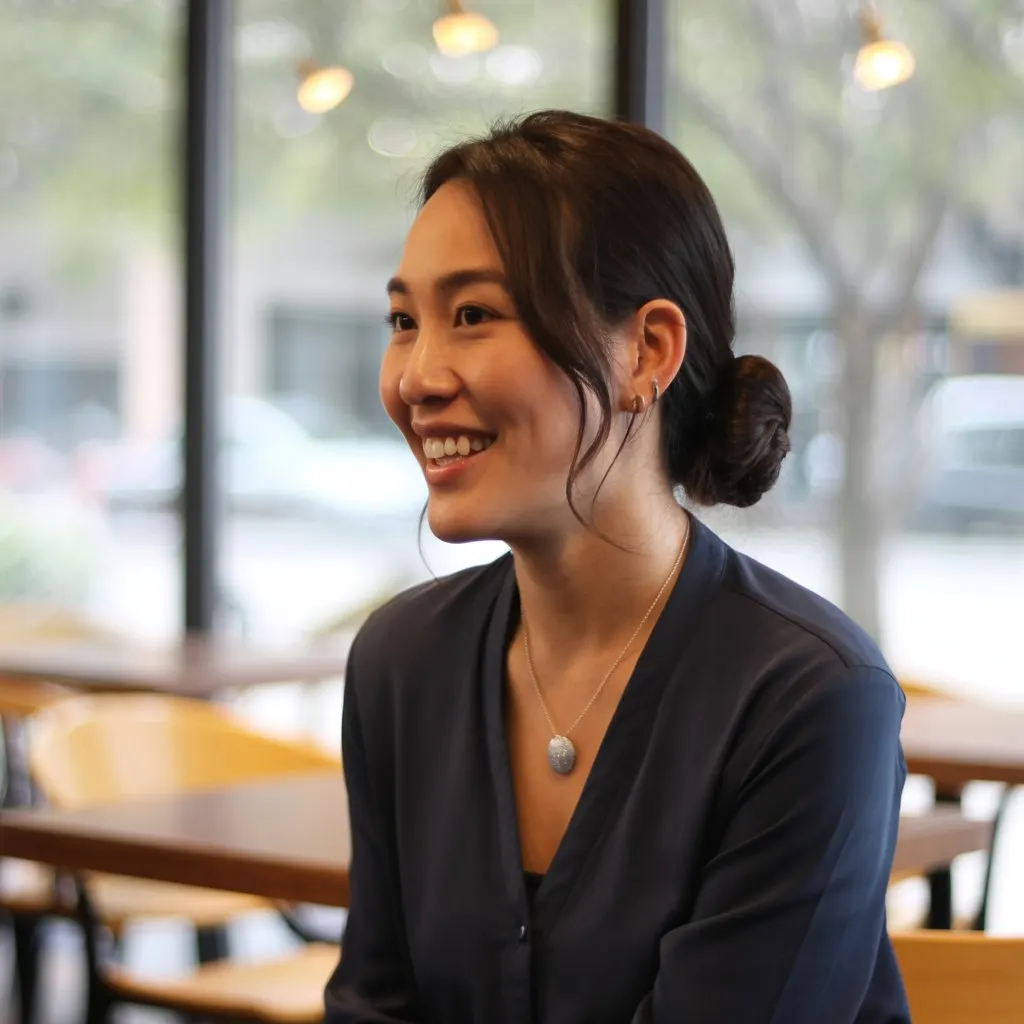You know that feeling when you’re about to walk into a crowded room and suddenly your throat tightens, your palms start sweating, and every part of you wants to turn around and go home? Social anxiety has this way of stealing moments that should be enjoyable and turning them into something that feels more like a test you’re convinced you’ll fail.
Here’s something I’ve discovered after years of wrestling with social anxiety myself: we often focus so much on what we’re afraid of that we forget to ask ourselves what actually brings us joy. And that shift—from fear-focused to joy-focused—can change everything. It sounds almost too simple, doesn’t it? But there’s genuine wisdom in the idea that overcoming social anxiety starts with finding something you truly enjoy.
Let me share why this matters so much, and more importantly, how faith can guide us through this journey toward both healing and genuine connection with others.
The Problem with Fighting Anxiety Head-On
Most advice about social anxiety tells you to “face your fears” or “push through the discomfort.” And yes, there’s truth in gradually exposing yourself to social situations. But here’s what that approach often misses: when you’re only focused on conquering your fear, every social interaction becomes a battle. You’re constantly on guard, analyzing your performance, waiting for the moment you’ll mess up.
Scripture reminds us in Philippians 4:8 to think about “whatever is true, whatever is noble, whatever is right, whatever is pure, whatever is lovely, whatever is admirable.” Notice that list doesn’t say “focus on everything you’re afraid of.” There’s wisdom in redirecting our attention toward what’s good and life-giving.
When anxiety whispers that you’ll be judged, rejected, or humiliated in social settings, it’s hard to challenge those thoughts directly. But when you’re genuinely absorbed in something you love—whether that’s discussing books, playing music, working on a craft, or serving others—anxiety loses some of its power. Your attention shifts from internal criticism to external engagement.
Why Joy Becomes a Bridge to Connection
Think about the last time you talked with someone about something you’re genuinely passionate about. Maybe it was a hobby, a cause you care about, or even just a really good recipe you discovered. Did you notice how the conversation flowed more naturally? How you weren’t as worried about what to say next or whether you sounded intelligent enough?
That’s the beautiful thing about shared enjoyment—it creates natural connection. When you’re both focused on something interesting, the pressure to perform socially decreases. You’re not trying to impress anyone or prove you’re worthy of belonging. You’re just two people sharing an experience.
God designed us for community, but He also gave each of us unique interests and passions for a reason. Ecclesiastes 3:13 tells us that “to eat and drink and find enjoyment in all the toil” is a gift from God. Those things we enjoy? They’re not frivolous distractions from “real” spiritual work. They’re part of how we’re meant to connect with others and experience the fullness of life.
Practical Steps to Finding Your Joy-Based Path
Start with honest reflection about what genuinely interests you. Not what you think should interest you, or what would make you seem impressive, but what actually makes you lose track of time. Maybe you love gardening, analyzing sports statistics, baking sourdough, sketching, learning languages, or volunteering with animals. The specific activity matters less than your authentic connection to it.
I remember spending months forcing myself to attend generic social events—happy hours, large parties, networking mixers—wondering why I still felt miserable despite “putting myself out there.” Then a friend invited me to a small book discussion group. Suddenly, I had a reason to be there beyond just “trying to be social.” We talked about themes and characters and ideas, and somewhere in those conversations, I stopped monitoring every word I said. That’s when real connection started happening.
Look for communities built around your interests. This is where faith communities can be especially helpful. Most churches offer smaller groups focused on specific activities—service projects, Bible studies, creative arts, outdoor adventures, sports leagues, or support groups. These settings naturally reduce social pressure because there’s always something to focus on beyond just making small talk.
The beauty of joining a faith-based group around your interests is twofold: you’re connecting with people who share your values, and you’re engaging in something meaningful together. When you’re serving meals at a shelter or working on a community garden project, conversation happens organically. You’re not standing around desperately trying to think of what to say next.
Give yourself permission to start small and specific. Social anxiety often makes us think we need to completely transform into extroverts who thrive at every social gathering. That’s not realistic or necessary. Instead, focus on finding one specific context where you can engage with others around something you enjoy.
Maybe that’s joining an online forum about your favorite hobby before attending in-person meetups. Perhaps it’s volunteering at a library if you love books, or helping with sound equipment at church if you’re into audio technology. You don’t have to become the life of the party. You just need to find your people in your way.
When Anxiety Still Shows Up (Because It Will)
Here’s something important: finding enjoyable activities doesn’t eliminate social anxiety entirely. Some days, you’ll still feel nervous walking into that pottery class or Bible study group, even though you love the activity itself. That’s okay. Growth isn’t about never feeling anxious again—it’s about learning to move forward despite the anxiety.
Prayer becomes especially important in these moments. Before heading to a social situation, I’ve learned to have honest conversations with God that sound something like this: “Okay, I’m nervous. My heart’s racing and I’m already imagining all the ways this could go wrong. But I trust You’re with me. Help me focus on the activity itself rather than my performance. Remind me that my worth isn’t determined by how smoothly this conversation goes.”
That kind of prayer isn’t asking God to magically remove all anxiety. It’s asking for the strength to keep showing up, and for perspective when anxious thoughts spiral. Psalm 34:4 says, “I sought the Lord, and he answered me; he delivered me from all my fears.” Sometimes that deliverance is instant, but often it’s a gradual process of learning to trust God’s presence in anxiety-provoking situations.
Use the activity itself as a grounding technique. When anxiety starts rising during a social interaction, bring your attention back to the enjoyable element. If you’re at a painting class and you notice yourself getting stuck in worried thoughts about what others think of you, redirect your focus to the texture of the paint, the colors you’re mixing, the image you’re creating. This isn’t avoidance—it’s strategic refocusing.
The Spiritual Dimension of Shared Joy
There’s something deeply spiritual about connecting with others through shared interests. When we engage in activities we enjoy with other people, we’re participating in the kind of community God intended for us. We’re using the gifts and interests He’s given us to build relationships.
First Corinthians 12 talks about how we all have different gifts and roles within the body of Christ. Some people naturally excel at hospitality and large group interactions. Others connect better through shared activities, quiet service, or one-on-one conversations. There’s no single “correct” way to overcome social anxiety or build community.
What matters is finding the path that works for you—the one that lets you show up as your authentic self rather than trying to force yourself into someone else’s mold. God isn’t asking you to become someone you’re not. He’s inviting you to bring who you are, including your interests and passions, into relationship with others.
Measuring Progress Differently
Traditional advice about overcoming social anxiety often measures success by how comfortable you become in any social situation. But what if we measured it differently? What if success meant finding even one or two contexts where you can genuinely connect with others around something meaningful to you?
That might look like having a standing Tuesday night game night with a few people from church. Or regularly attending a community choir where you can focus on the music while naturally getting to know others. Or volunteering weekly at a cause you care about and gradually building relationships with other volunteers.
These connections might develop more slowly than typical friendships. You might still struggle at large parties or spontaneous social events. That’s okay. You’re not trying to fix yourself—you’re finding a sustainable way to experience community that honors both your struggles and your strengths.
Romans 12:2 encourages us not to conform to the pattern of this world, but to be transformed by the renewing of our minds. Sometimes that transformation means letting go of the world’s expectations about how social connection “should” look and finding the path God uniquely designed for you.
Moving Forward with Hope
Overcoming social anxiety through finding something you enjoy isn’t about avoiding the hard work of facing your fears. It’s about approaching that work from a different angle—one rooted in joy rather than just fear elimination. It’s recognizing that God created you with specific interests and passions for a reason, and those very things can become bridges to the community your heart craves.
Start today by identifying one thing you genuinely enjoy—something that makes you lose track of time or lights up your face when you talk about it. Then ask yourself: where could I engage in this activity with other people? What faith-based or community groups exist around this interest? How might God be inviting me to connect with others through this gift He’s given me?
Remember, you don’t have to transform into someone completely different. You just need to find your people, in your way, around the things that bring you genuine joy. That’s not avoiding social anxiety—that’s outsmarting it by building connections on a foundation stronger than fear.
God walks with you through every anxious moment, and He’s also the one who placed those interests and passions in your heart. Trust that both can be part of your healing journey, and that genuine connection is possible even when social anxiety hasn’t completely disappeared. You’re not alone in this, and there’s hope for a life where joy gradually crowds out fear, one small shared experience at a time.




